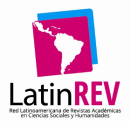Favoring inclusive publishing and distribution channels so that authors are never excluded on economic grounds
“green” and “diamond” Open Access in Latin America within the framework of BOAI20
DOI:
https://doi.org/10.54871/cl4c315aKeywords:
BOAI, Redalyc, LA Referencia, Latin America, Open AccessAbstract
The BOAI initiative has not only accompanied the course of the Open Access movement for two decades but has also evolved with it. It has moved along from encouraging the availability of scientific content on the web through repositories and journals, to highlighting the importance of mechanisms such as licenses, policies, tools and reuse. In one of the recommendations of the BOAI 2022, it is urged not to exclude authors for economic reasons and the green and diamond routes are pointed out as strategies. In this sense, the work carried out in Latin America in both routes is remarkable, and even more so the potential for collaboration between repositories and diamond OA journals. Here, we describe the collaborative work that is taking place between green and diamond Open Access in Latin America within the framework of BOAI20, through LA Referencia and Redalyc. An effort towards the creation of a sustainable ecosystem of science as a common good.
Downloads
References
Abraham, Sunil, et al. (2012). Diez años desde la Budapest Open Access Initiative: Hacia lo abierto por defecto. Traducción de Remedios Melero y Dominique Babini. https://www.budapestopenaccessinitiative.org/boai10/spanish-translation/
Babini, Dominique, et al. (2022). LA Budapest Open Access Initiative: Recomendaciones en su 20o aniversario. Traducción de Juan Pablo Alperin, et al. https://www.budapestopenaccessinitiative.org/boai20/boai20-spanish-translation/
Becerril-García, Arianna (2021). La infraestructura que sostiene el Acceso Abierto no comercial en América Latina, el Caribe, España y Portugal. Resultados de la encuesta regional a revistas científicas. En Arianna Becerril-García y Saray Córdoba González (Eds.), Conocimiento abierto en América Latina: Trayectoria y desafíos (pp. 117-146). México: Universidad Autónoma del Estado de México/CLACSO. http://ri.uaemex.mx/handle/20.500.11799/112502
Becerril-García, Arianna (25 de mayo 2022). Acuerdo de Cooperación RedCLARA/LA Referencia y REDALYC. AmeliCA. http://amelica.org/index.php/2022/05/25/una-cooperacion-entre-redclara-redalyc-y-la-referencia-que-promueva-la-ciencia-como-un-bien-comun/
Chan, Leslie et al. (2002). Iniciativa de Budapest para el Acceso Abierto. https://www.budapestopenaccessinitiative.org/read/spanish-translation/
DOAJ (2022). Directory of Open Access Journals. https://doaj.org/
Fuchs, Christian, y Sandoval, Marisol (2013). The Diamond Model of Open Access Publishing: Why Policy Makers, Scholars, Universities, Libraries, Labour Unions and the Publishing World Need to Take Non-Commercial, Non-Profit Open Access Serious. TripleC: Communication, Capitalism & Critique. Open Access Journal for a Global Sustainable Information Society, 11(2), 428-443. https://doi.org/10.31269/triplec.v11i2.502
Guédon, Jean-Claude (2017). Open Access: Toward the Internet of the Mind. https://www.budapestopenaccessinitiative.org/boai15/open-access-toward-the-internet-of-the-mind/
Raju, Reggie (2018). From green to gold to diamond: Open access’s return to social justice. IFLA WLIC 2018, 1-9. https://library.ifla.org/id/eprint/2220/
Salatino, Maximiliano y Banzato, Guillermo (2021). Confines históricos del acceso abierto latinoamericano. En Arianna Becerril García y Saray Córdoba González (Eds.), Conocimiento abierto en América Latina: Trayectoria y desafíos (pp. 79–115). México: Universidad Autónoma del Estado de México/CLACSO.
UNESCO (2021). Recomendación de la UNESCO sobre la Ciencia Abierta. https://unesdoc.unesco.org/ark:/48223/pf0000379949_spa
Downloads
Published
How to Cite
Issue
Section
License
Copyright (c) 2022 Arianna Becerril García

This work is licensed under a Creative Commons Attribution-NonCommercial-ShareAlike 4.0 International License.








